- Blog
- 08.08.2017
- Data Fundamentals, Dev Dialogues
Using the Salesforce Query Component in Matillion ETL for Amazon Redshift
 The Salesforce Query component in Matillion ETL for Amazon Redshift presents an easy-to-use graphical interface, enabling you to connect to live Salesforce and Force.com accounts.
Many of our customers are using this service for example to do event tracking, case and task management. The component allows you to bring the Salesforce data into Redshift for analysis and integration.
The connector is completely self-contained: no additional software installation is required. It’s within the scope of an ordinary Matillion license, so there is no additional cost for using the features.
The Salesforce Query component in Matillion ETL for Amazon Redshift presents an easy-to-use graphical interface, enabling you to connect to live Salesforce and Force.com accounts.
Many of our customers are using this service for example to do event tracking, case and task management. The component allows you to bring the Salesforce data into Redshift for analysis and integration.
The connector is completely self-contained: no additional software installation is required. It’s within the scope of an ordinary Matillion license, so there is no additional cost for using the features.
Video
Watch our tutorial video for a demonstration on how to set up and use the Salesforce Query component in Matillion ETL for Amazon Redshift. https://youtu.be/PM7d7aKYyZ4Authentication and Authorization
When you create an Orchestration job containing a Salesforce Query component, you’ll find that two authentication methods are available:- Username/Password/Security Token
- OAuth
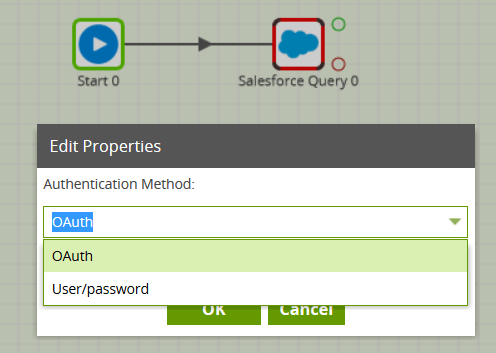 User/password authentication
To use this option, you will need your Salesforce username and password, plus a Security Token, which can be generated or reset using the Salesforce site.
OAuth authentication
To use this option, you must first go to the Project / Manage OAuth menu, and follow the on-screen instructions. Use the Consumer Key and Consumer Secret to create a new Matillion OAuth entry for Salesforce. Once this is complete and has been authorised, choose the new Salesforce OAuth profile in the Salesforce Query’s Authentication property.
User/password authentication
To use this option, you will need your Salesforce username and password, plus a Security Token, which can be generated or reset using the Salesforce site.
OAuth authentication
To use this option, you must first go to the Project / Manage OAuth menu, and follow the on-screen instructions. Use the Consumer Key and Consumer Secret to create a new Matillion OAuth entry for Salesforce. Once this is complete and has been authorised, choose the new Salesforce OAuth profile in the Salesforce Query’s Authentication property.
Data Source
Once security has been configured, you will then be able to choose a Data Source from the dropdown list. The Salesforce Data Model contains nearly 200 tables and views to choose from, in addition to any custom objects if you have created them.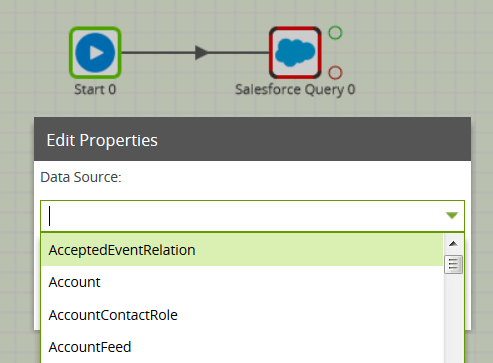 Having chosen a Data Source, you can then go to the next property and choose one or more names from the Data Selection dialog. These will form the columns of your Redshift table.
Having chosen a Data Source, you can then go to the next property and choose one or more names from the Data Selection dialog. These will form the columns of your Redshift table.
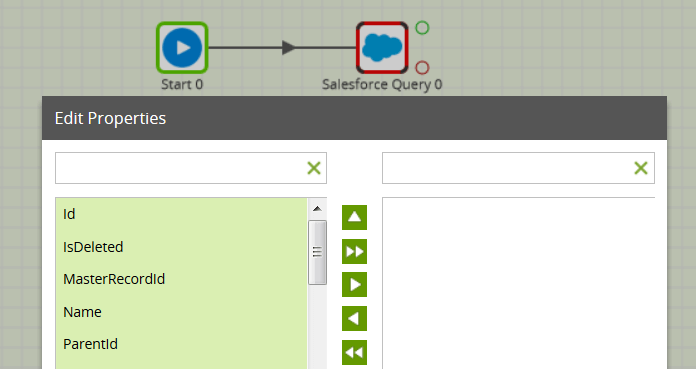
Running the Salesforce Query
The final mandatory properties for this component are the Target Table name and an S3 Staging Area. The latter is the URL of an S3 bucket which will be used temporarily to stage the queried data. You should be able to use the dropdown list of values. Remember that this component also has a Limit property, defaulting to 100, which can be used to force an upper limit on the number of records returned. You can run the Orchestration job, either manually or using the Scheduler, to query your data from the Salesforce API, and bring it into Redshift.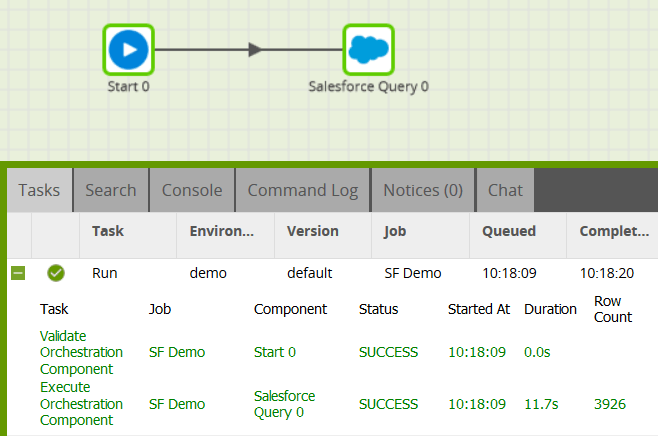
Exploring further
The Salesforce Query component offers an “Advanced” mode instead of the default “Basic” mode. In Advanced mode, you can write a SQL-like query over all the available fields in the data model. This is automatically translated into one or more Salesforce API calls on your behalf.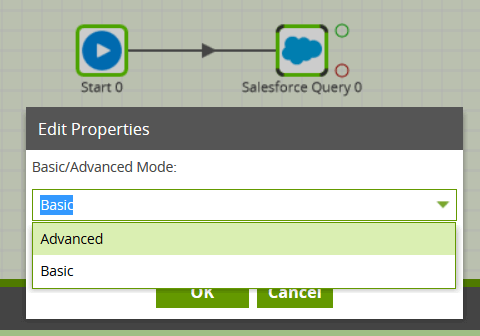 Once you have finished bringing all the necessary data from Salesforce into Redshift, you can then use it in a Transformation job.
Once you have finished bringing all the necessary data from Salesforce into Redshift, you can then use it in a Transformation job.
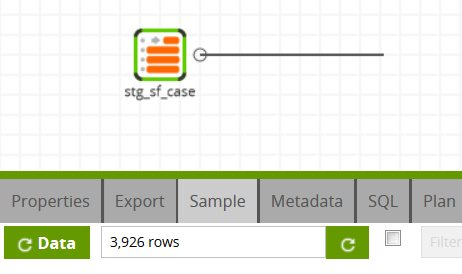 In this way, you can build out the rest of your downstream transformations and analysis, taking advantage of Redshift’s power and scalability.
In this way, you can build out the rest of your downstream transformations and analysis, taking advantage of Redshift’s power and scalability.
Useful Links
Salesforce Query Component in Matillion ETL for Amazon Redshift Component Data Model OAuth Set Up Integration information VideoBegin your data journey
Want to try the Salesforce.com Query component in Matillion ETL for Amazon Redshift? Arrange a free 1-hour training session now, or start a free 14-day trial.
Ian Funnell
Data Alchemist
Ian Funnell, Data Alchemist at Matillion, curates The Data Geek weekly newsletter and manages the Matillion Exchange.
Featured Resources
Blog
Enabling DataOps With Data Productivity Language
Discover how Matillion leverages Git and the Data Productivity Language (DPL) to enable seamless implementation of DataOps ...
BlogCustom Connector for Public Statistics (Police API)
A demonstration of the practical steps for setting up components, manipulating and validating data, creating and scheduling ...
BlogMastering Git At Matillion. An In-Depth Guide To Merging
Merging in Git is the process of integrating changes from one branch into another. Merging is the backbone of collaboration in ...
Share: